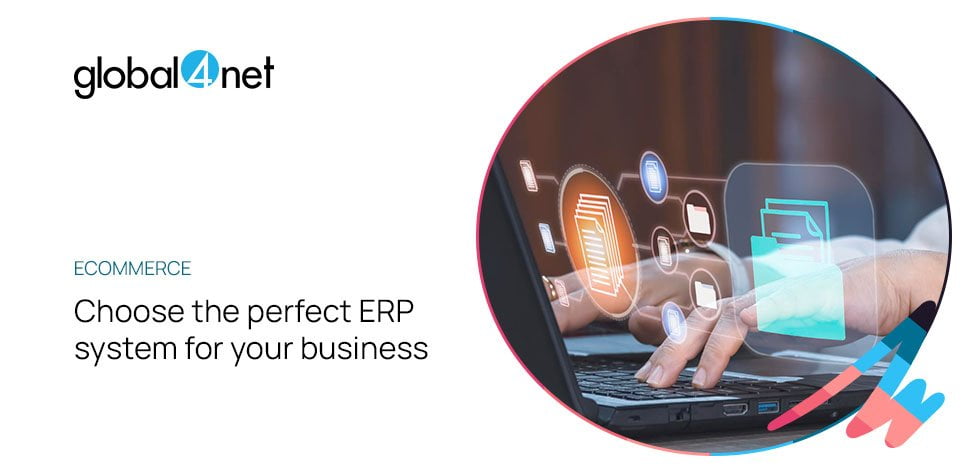ul. Strzegomska 2-4
53-611 Wrocław
NIP 8992786490
KRS 0000608120
REGON 363987723
Global4Net Sp. z o. o.
+48 71 358 41 00
© 2009 – Global4Net. All Rights Reserved.

ERP is an abbreviation for Enterprise Resources Planning, an IT system. ERP stands for a class of information systems, which means technological solutions used in enterprises. The history of ERP systems dates back to the early 1990s, when they evolved from MRP II (Manufacturing Resource Planning).
The ERP system is used in practice to manage the entire organization, taking into account information management modules in various organizational areas. Leading ERP modules include, such as sales, warehousing, production planning, customer relationship management, procurement, delivery tracking, finance and accounting, logistics, inventory management, human resources and payroll and others. In answer to the question of what an ERP system is used for, it is important to point out the diverse functions to support business development.
Choosing the ideal ERP system for a business is dictated by certain factors. First of all, an important difference is the solutions dedicated separately to small and large business. Small and medium-sized businesses manage a smaller number of various resources, which affects the specificity of information use in decision-making. The architecture of the ERP system is less complex in small companies, although with the possibility of extending its functionality (importantly, without the need to replace the entire system).
Typical ERP modules in a small and medium-sized business are processes (as the most extensive), finance and accounting, projects, and human resources and payroll (HR). Large enterprises, on the other hand, use more modules for ERP work. There are at least a few detailed solutions in each of them. For example, in the financial management module there is budget control, General Ledger, receivables management, while in the supply chain management module there are trade agreements, inventory management, warehouse management, distribution planning, quality management, etc. The design of technological innovation in the enterprise is based on the belief that the more complex the ERP architecture, the longer the implementation time of the system in the enterprise.
To choose the ideal ERP system for your business needs, you should compare the warranties offered by different software providers. Among the expected guarantees should be such as:
Many ERP system software providers take into account the specifics of information management and enterprise resource planning in different industries. Some ERP systems have developed their own dedicated modules, adapted to the specifics of doing business in, for example, the furniture industry, energy, food, health, etc. The question about such modules should be asked already at the stage of comparing market offers to find the ERP system ideal for your business.
Entrepreneurs have numerous examples of ERP available on the Polish market. The most popular ERP systems are:
Software providers offer competitively priced solutions, giving you the flexibility to choose the system best suited to the needs and financial potential of your business. In addition to the price aspect, the selection of the ideal ERP system should be based on the formation of the preferred database platform (for example, Oracle, MS SQL, PostgreSQL, Microsoft SQL, Firebird, SQL Anywhere and others).
Choosing the perfect ERP system requires agreeing with the software provider on the user’s preferred interface and deciding between a desktop or cloud-based solution. The ERP system can also be adapted to the specific needs identified at the level of the company’s logistics system. ERP systems in logistics are more and more common solutions supporting business development on competitive markets in the 21st century.
Write to us




